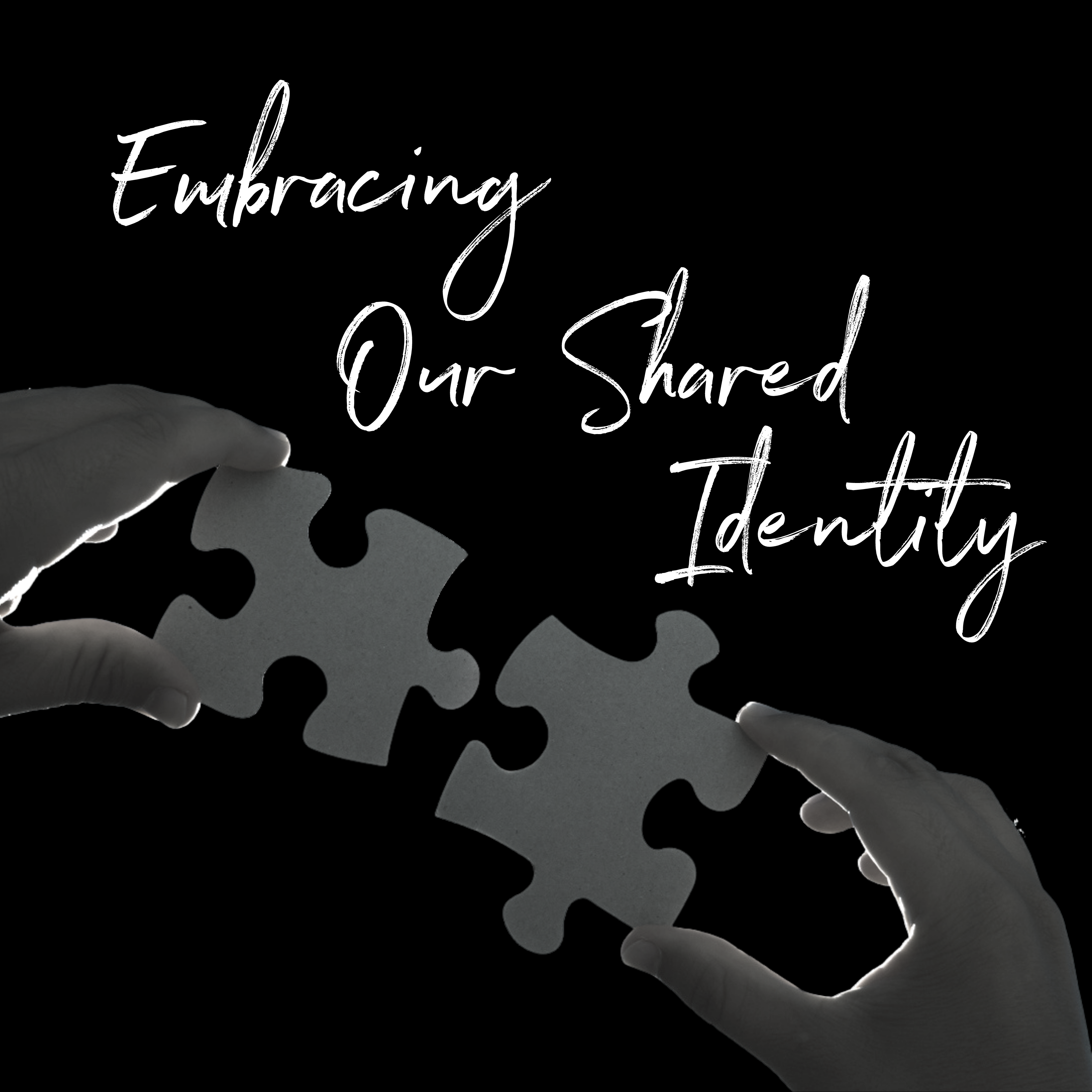
Embracing Our Shared Identity
“For as many of you as have been baptized into Christ have put on Christ. There is neither Jew nor Greek, there is neither slave nor free, and there is neither male nor female, for you are all one in Christ Jesus. If you are Christ’s, then you are Abraham’s seed, and heirs according to the promise.” Galatians 3:27-29 (MEV)
Someone recently asked me to share a personal experience of “shared Identity,” and what impact it had on my life. At first, I was puzzled by this topic, because what many people call “identity” might also be described as “collected experiences.”
How do we define our identity? Is it simply a collection of experiences that make us who we are? Or is there something deeper, more permanent? One obvious place to turn is scripture.
There are over 100 passages in the New Testament alone directly discussing what our identity is in Christ. In his letter to the Ephesians, Paul writes extensively about the new identity given to each of us when we are in Christ. He tells us that we have been “blessed in Christ with every spiritual blessing in the heavenly places.” (Ephesians 1:3)
He goes on to teach us that we have been chosen, adopted, redeemed, forgiven, grace-lavished and unconditionally loved and accepted. We are pure, blameless and forgiven. We have received the hope of spending eternity with God. This is the identity Christ gives to each of us, and it is the true identity God sees in us. This identity can never be altered or changed by what we do.
It’s a wonderful, freeing, underserved gift from our Heavenly father we can never earn.
However, our identity in the world looks a bit different. Over the course of our lives, we are shaped and molded through individual experiences and the relationships surrounding us. We “become” our identity through the life experiences we accumulate. David Benner, a psychologist and author of the book “The Gift of Being Yourself,” defines identity as “who we experience ourselves to be — the I each of us carries within.”
Notice that from the worldly perspective, our identity is not necessarily who God says we are, but who we see ourselves to be. And how others see us.
It is this aspect of our personalities, of who we are both to ourselves and to others, that people refer to when they talk about “shared” identity. Yet, by learning what we have in common, what brings us together rather than what separates us, we are able to share a small taste of who we are to God with those around us here on in the world. When we experience shared Identity, we learn to change the “I” in to a we!
What is shared identity and how do we find it? In the secular world, this is something individuals and organizations do all the time. It’s connecting with others we might never connect with in a small or large setting to share in something in common. Think of a sports team, or fund-raising committee, or even neighborhood group.
“Forgiveness” can be another expression of shared Identity. In fact, the story of the Bible can in many ways be summed up in the idea of forgiveness – God forgiving all of us (our shared identity in Christ) and our forgiveness of each other (identity we share in the world).
When I was asked about my own experience in this, I immediately thought of when my mother was declining cognitively while she was also my father’s caregiver. I was immediately thrust into a world I knew nothing about.
Taking over my parents’ entire lives medically and financially, making life-changing decisions for them and my own family was not something for which I was prepared. Who truly is? Moreover, I had no training in what to do! The emotional toll it took on me for years was enormous, and the tremendous push back I got from other family members who did not necessarily agree with my decisions weighed heavily on me and my husband.
Eventually, I met a small group of women, all from different backgrounds and circumstances, who were going through the exact same difficulty I was experiencing. We connected in a most extraordinary way. We not only shared resources, ideas, and medical information with one another, but we were there for each other emotionally during the ups and downs of caring for our elderly parents with dementia. In the truest sense, we were demonstrating what shared identity can look like!
I often say this experience impacted my life in immeasurable ways. I was able walk through one of the most difficult seasons imaginable and not feel ALONE. To this day, I remember these women and our shared Identity experience that comforted all of us for many years.
Shared identity can be found all around us and may look very different for every individual. But what we must know and understand is that just as in our identity in Christ, the identities we share with each other are important in our communities and are irreplaceable. These are the earthly expressions of our united identity with God.
We may feel alone or isolated in certain times and seasons of our lives but through our identity in Christ, expressed and shared through our identities with each other, we are never alone and always connected spiritually and in the world.
May God continuously lead your path.


